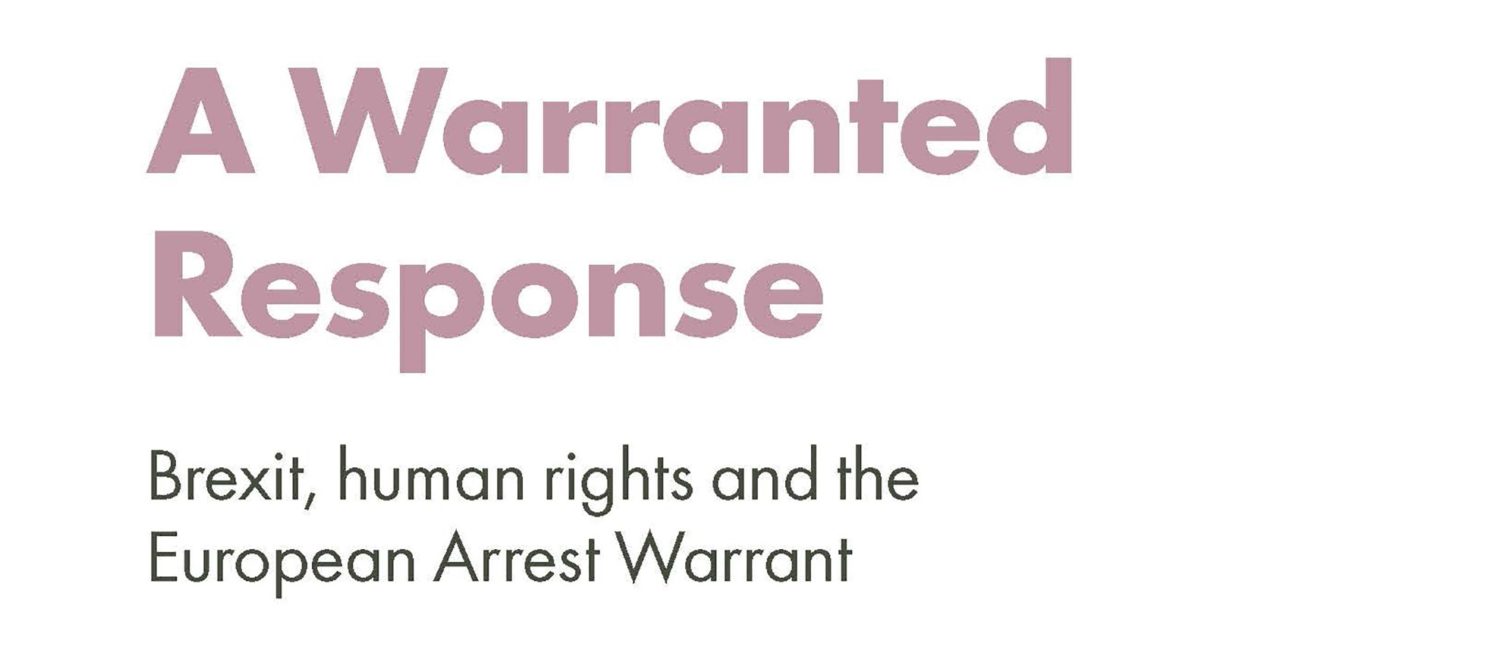Human rights abuses under EU extradition rules must stop with Brexit – Fabian Society report
A new Fabian Society report, published as Brexit negotiations reach a crunch point, calls for a new UK-EU extradition framework which ensures respect for human rights.
Under the European Arrest Warrant procedure (EAW) EU member states are able to request convicted criminals and suspects be transferred within weeks. Once the UK leaves the EU, the EAW will no longer apply and a new arrangement will be needed.
A Warranted Response, by David Clark, argues that respect for human rights must take priority over efficiency in the post-Brexit extradition system. The report highlights numerous examples of extraditions that have failed to respect international human rights law citing police brutality, fabrication of evidence and unacceptable conditions of detention.
On Tuesday, the Court of Appeal will hear the case of Alexander Adamescu, a German citizen who was subject to an EAW request from Romania in July 2016. In this case there is strong evidence of political motivation on the part of the Romanian authorities. The report discusses the case as a clear example of the shortcomings of EAW.
The report urges the government to ensure the UK’s judicial integrity and efficiency is upheld, and human rights concerns addressed through a bespoke UK-EU extradition agreement that does not simply replicate the EAW.
Recommendations include:
- Agreeing reasonable time limits for the completion of proceedings.
- Abandoning the principle of mutual recognition between justice systems. The UK should be able to require states to provide prima facie evidence of guilt and to allow courts to fully consider the human rights implications of each case.
Key facts:
- The EAW was adopted by the EU in June 2002 and entered into force on 1 January 2004.
- Between 2004 and 2015 the UK surrendered 8,286 requested persons to the rest of the EU under the EAW and secured the surrender of 1,248 requested persons in return, including persons suspected of murder, rape and drug trafficking.
- Extradition under the EAW is intended to take no longer than 90 days from the issuing of the warrant to the surrender of the requested person.
- The government has estimated that it takes, on average, three months to extradite someone using the EAW compared to 10 months for non-EAW extraditions.
David Clark, author of A Warranted Response: Brexit, human rights and the European Arrest Warrant said:
“Under the European Arrest Warrant, we’ve seen extraditions from the UK to countries that have then abused the fundamental human rights of the people we’ve sent.
The new arrangements that replace the EAW must end automatic extraditions between the UK and EU member states to ensure cases like that of Alexander Adamescu do not happen again. At a time of rising authoritarianism in some EU countries we need an extradition system that enables the UK to be a haven of liberty in the face of prosecutions that challenge human rights.”
Andrew Harrop, Fabian Society general secretary said:
“This report comes at a critical moment in the Brexit negotiations and draws attention to an overlooked aspect of the UK’s legal ties to the EU. Since 9/11, the European Arrest Warrant has been relied upon by the UK’s security services to extradite convicted criminals from the 27 other EU states. However, there have clearly been cases where individual rights have been breached and so when the UK leaves the EU, the government will need to work with its European counterparts to reach a new extradition agreement which addresses these human rights concerns.”
–ENDS—
NOTES:
- Contact: Rabyah Khan, media and communications manager at the Fabian Society
0207 227 4906 | 07888861096 | rabyah.khan@fabians.org.uk - A Warranted Response: Brexit, human rights and the European Arrest Warrant is available here.
- This report represents not the collective views of the organisations involved but only the views of the individual author.
- The Fabian Society is Britain’s oldest political think tank. Founded in 1884, the Society is at the forefront of developing political ideas and public policy on the left. The society is alone among think tanks in being a democratically-constituted membership organisation, with over 7,000 members. It is constitutionally affiliated to the Labour party.
